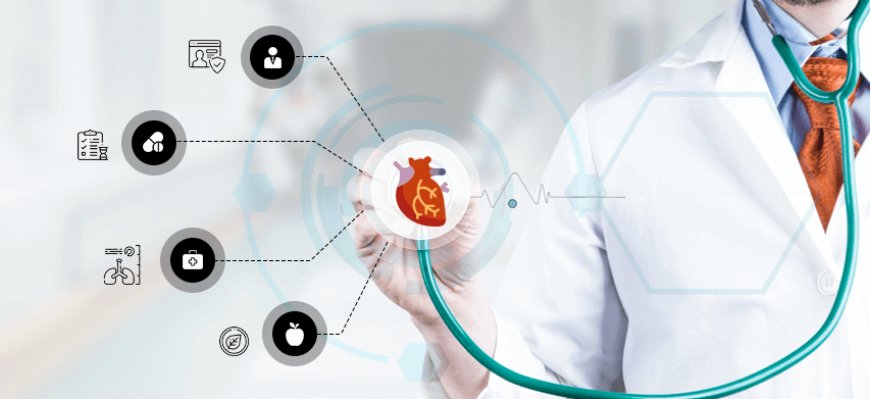IoT in Healthcare: Overcoming Challenges for Future Applications

The Internet of Things (IoT) is transforming industries worldwide, and healthcare is no exception. By connecting devices and enabling real-time data exchange, IoT has the potential to revolutionize healthcare. It can enhance patient care, improve operational efficiency, and offer personalized treatment. However, despite its potential, implementing IoT in healthcare comes with challenges. In this blog, we'll explore these challenges and how they can be overcome to unlock future opportunities.
At Java India, we understand the importance of addressing these challenges to make IoT in healthcare 2024.
The Promise of IoT in Healthcare
IoT in healthcare involves connecting medical devices, wearables, and other technologies to the internet. This connectivity allows for continuous patient monitoring, real-time data analysis, and improved decision-making. Here are some key benefits of IoT in healthcare:
1. Enhanced Patient Care: IoT devices can monitor patients' vital signs continuously. This helps healthcare providers detect issues early and respond quickly. Early intervention can lead to better patient outcomes and reduced complications.
2. Improved Operational Efficiency: IoT can automate tasks like inventory management and equipment tracking in hospitals. This reduces administrative burdens and allows healthcare staff to focus on patient care.
3. Personalized Treatment: IoT enables the collection of data from various sources. This data can be used to tailor treatments to individual patients, improving the effectiveness of care.
4. Remote Healthcare: IoT allows for remote monitoring of patients. This is particularly useful for patients with chronic conditions, as it reduces the need for frequent hospital visits and ensures continuous care.
Despite these benefits, there are significant challenges that must be addressed for IoT to realize its full potential in healthcare.
Key Challenges in IoT Healthcare Applications
1. Data Security and Privacy Concerns: Healthcare data is highly sensitive. Any breach can have severe consequences. IoT devices, connected to the internet, are vulnerable to cyberattacks. Ensuring robust data security and privacy is crucial.
2. Interoperability Issues: Many healthcare systems use different devices and software platforms. These systems often do not work well together, leading to data silos. For IoT to be effective, all devices and systems need to communicate seamlessly.
3. Data Overload: IoT generates vast amounts of data. Managing and analyzing this data can be overwhelming. Healthcare providers may struggle to find actionable insights, leading to information overload.
4. Regulatory and Compliance Challenges: Healthcare is a highly regulated industry. Any technology that handles patient data must comply with strict regulations like HIPAA (Health Insurance Portability and Accountability Act) in the U.S. Navigating these regulations can be complex and time-consuming.
5. High Implementation Costs: Implementing IoT in healthcare can be expensive. The costs include purchasing IoT devices, integrating them into existing systems, and training staff. However, these costs should be weighed against the long-term benefits.
Strategies to Overcome Challenges
1. Implement Robust Security Measures: Healthcare providers must prioritize data security. This includes using encryption, strong authentication protocols, and regular software updates. Conducting security audits regularly is also essential.
2. Promote Interoperability: To overcome interoperability challenges, healthcare providers and IoT vendors need to develop and adopt industry-wide standards. Organizations like HL7 and the Open Connectivity Foundation (OCF) are working on creating standardized protocols for seamless communication between devices.
3. Use Advanced Analytics and AI: Advanced analytics and AI-powered tools can help manage the vast amounts of data generated by IoT. These tools can filter out irrelevant data and provide actionable insights. For example, AI algorithms can analyze data from wearables to predict health issues before they become critical.
4. Navigate Regulatory Compliance: Healthcare providers must stay informed about regulatory requirements governing IoT in healthcare. They should work with legal experts to ensure compliance. IoT vendors should design products with compliance in mind to simplify adherence to regulatory standards.
5. Explore Cost-Effective Solutions: While IoT implementation costs can be high, healthcare providers can explore cost-effective solutions. Cloud-based IoT platforms, for example, reduce the need for expensive infrastructure. Open-source software can also lower licensing costs.
The Future of IoT in Healthcare
Despite the challenges, the future of IoT in healthcare is promising. As technology advances, we can expect more innovative applications of IoT in this field. Some potential developments include:
1. AI-Powered Diagnostics: IoT and AI will work together to provide more accurate diagnostics. For example, IoT devices could monitor patients' health, while AI analyzes the data in real-time to detect early signs of disease.
2. Smart Hospitals: Smart hospitals, where IoT devices are integrated throughout the facility, will become more common. These hospitals can use IoT to monitor patient vitals, manage resources, and even control environmental conditions to create a more comfortable atmosphere.
3. Remote Surgery: IoT could enable remote surgery, where surgeons perform procedures on patients in different locations using robotic systems connected to the internet. This would make specialized care more accessible.
4. Personalized Medicine: IoT will play a key role in personalized medicine. By collecting and analyzing data from wearable devices, healthcare providers can create personalized treatment plans tailored to individual patients.
Conclusion
IoT has the potential to transform healthcare by improving patient care, enhancing operational efficiency, and enabling personalized treatment. However, to fully realize this potential, the challenges associated with IoT implementation must be addressed.
At Java India, we are committed to helping healthcare providers overcome these challenges and leverage IoT for future applications. Our expertise in IoT development and deep understanding of the healthcare industry allow us to create innovative solutions that drive better patient outcomes.
As the healthcare industry evolves, IoT will play an increasingly important role in shaping the future of care delivery. By overcoming the challenges and embracing the opportunities that IoT presents, healthcare providers can ensure they are well-positioned to meet the needs of patients today and in the future.
Contact Java India to learn more about how we can help you leverage IoT for your healthcare applications.

 orangeOM
orangeOM 










